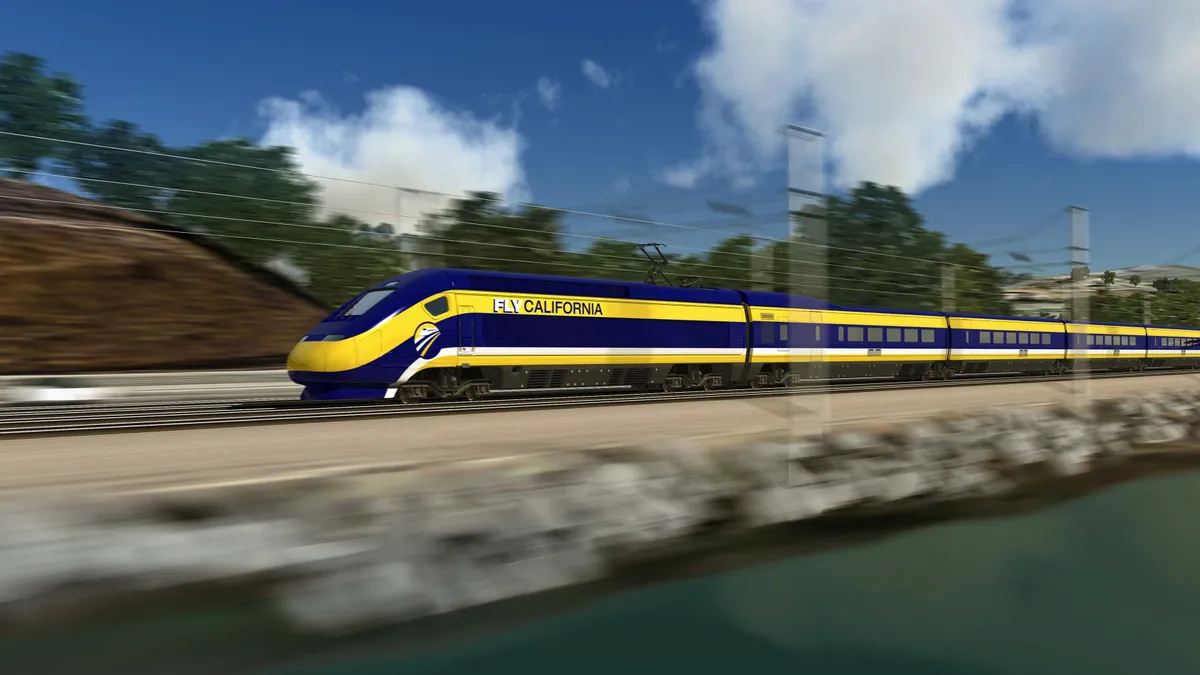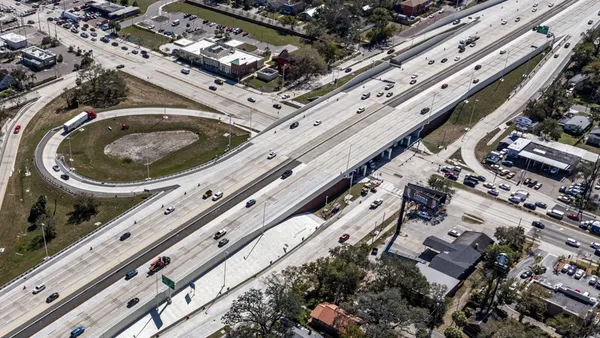Dive Brief:
- The California High-Speed Rail Authority board of directors has voted unanimously to advance the $77 billion bullet train project to Bakersfield, California. Board Chair Dan Richard said in a press release that a high-speed rail stop in Bakersfield would "spur new economic activities and development in the region and tie the Central Valley to Northern and Southern California like never before.”
- The board approved the high-speed rail's alignment from Fresno, California, to a future downtown Bakersfield station, which allows the authority to "take additional steps toward advancing major work on the project," according to the press release. This work, according to KGET News, will likely include negotiations for the necessary land acquisitions. The board also certified the Final Supplemental Environmental Impact Report for the Fresno-to-Bakersfield route under the California Environmental Quality Act. The report evaluates the "locally generated alternative," which is an update to a 2014 route that Bakersfield officials rejected. The Fresno Bee reported that the revised route will cost $200 million less than the original.
- In order for the project to move closer to the construction phase, the Federal Railroad Administration must issue a Final Supplemental Environmental Impact Statement under the National Environmental Policy Act. Once that statement is delivered, then the administration would consider issuing a Record of Decision reflecting its approval of the project.
Dive Insight:
Despite optimism on the part of the authority's board members, the bullet train project faces more obstacles than just the time it will take the FRA to issue its final impact statement and record of decision.
First, the project is not fully funded. In fact, the authority reported earlier this year that it is about $40 billion short, and the gap is likely to grow. The authority anticipates that the bullet train's total costs could reach $98 billion.
Opponents of the rail have also launched a campaign to take away part of the project's funding through a potential 2020 ballot initiative. The proposed legislation includes a provision that would force the governor to halt construction of the bullet train, designate extra revenue for alternate transportation projects and give city and county governments more say about how they use transportation funds.
It is likely that the board is also worried about the outcome of the upcoming elections. No matter who is selected, the project is losing outgoing Gov. Jerry Brown, a staunch advocate of the bullet train. If Democrat Gavin Newsom wins, the project could be limited to Northern California until the authority can demonstrate financial viability. If Republican John Cox, a critic of the project, wins, he could stop rail construction in its tracks.













